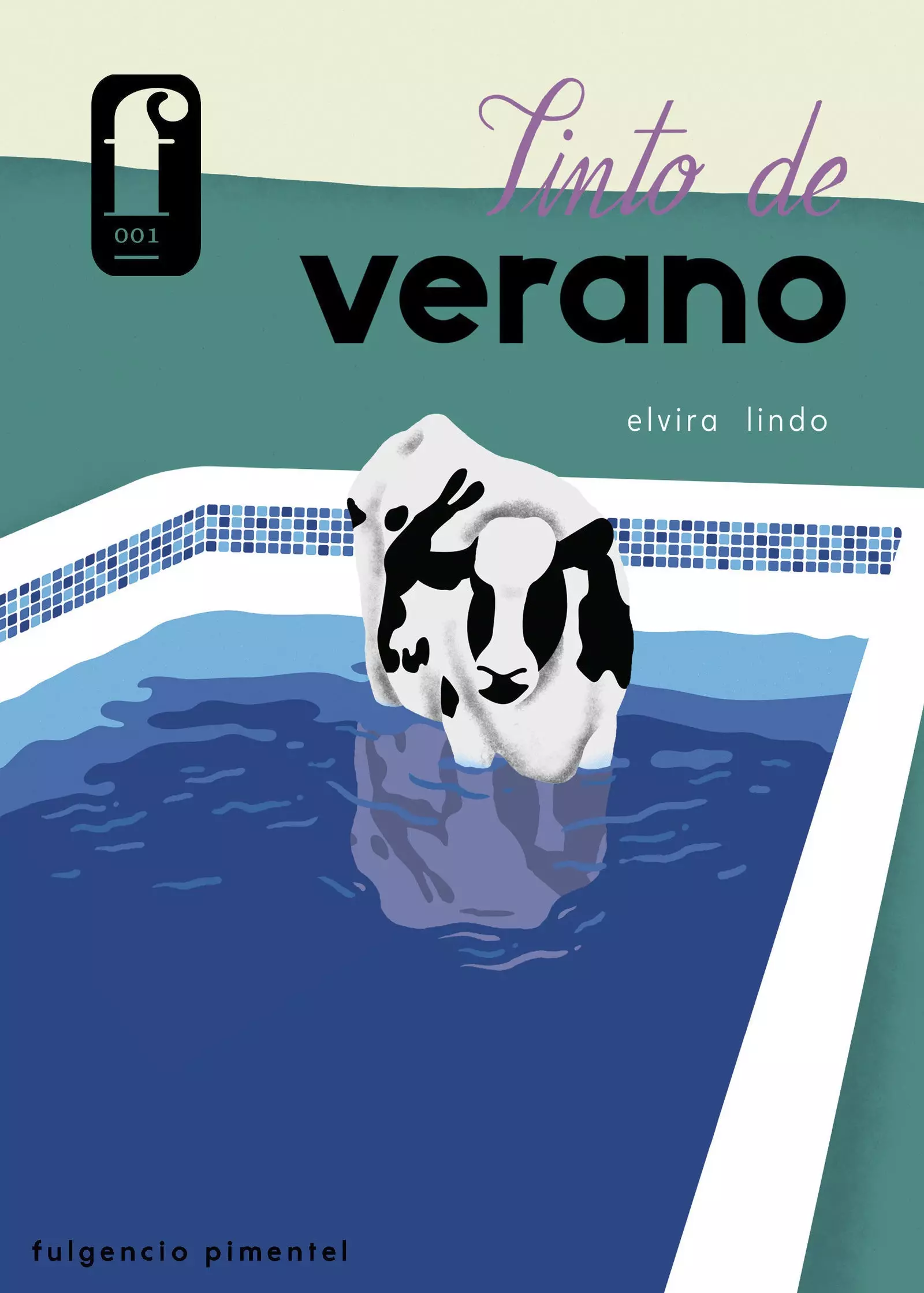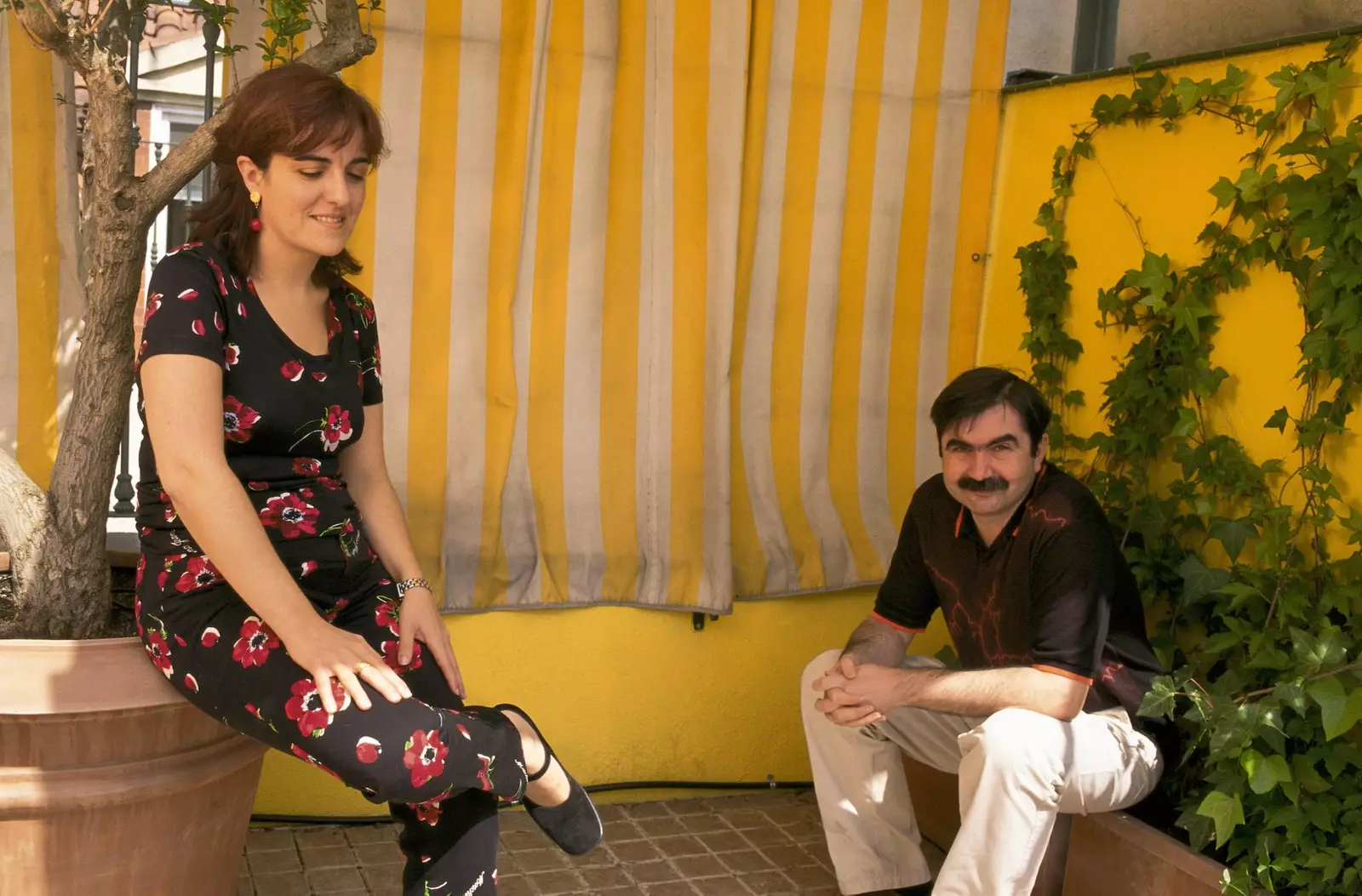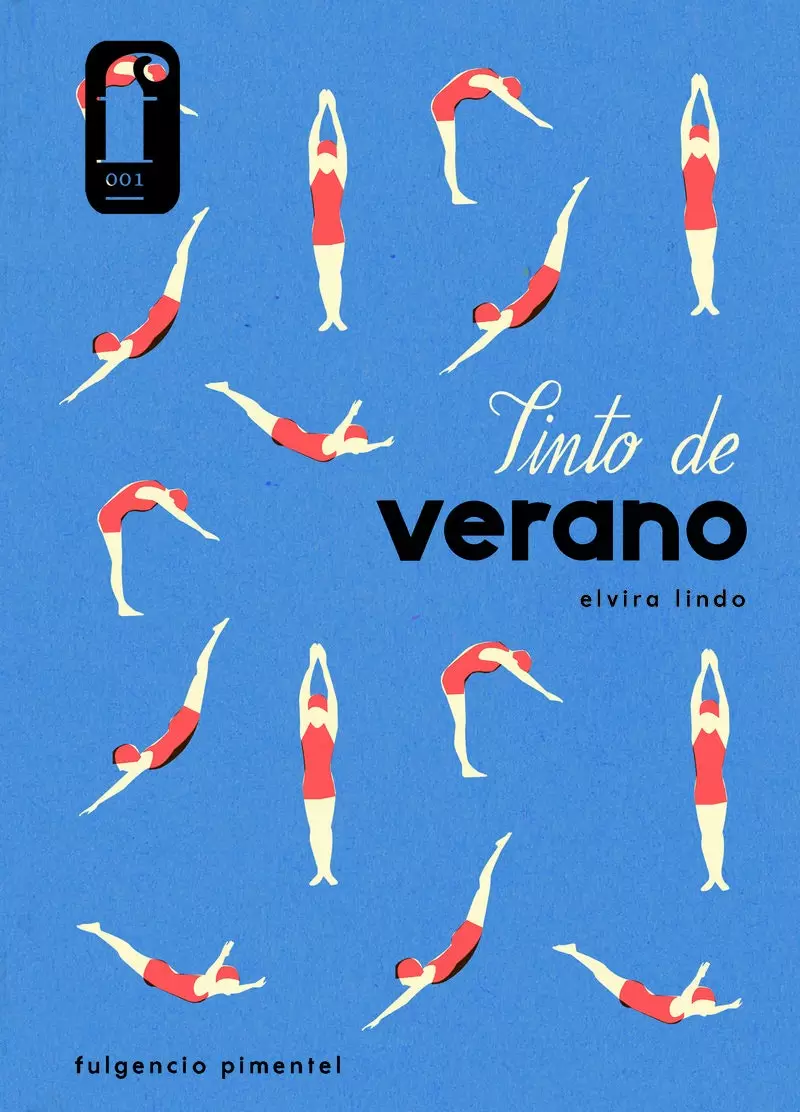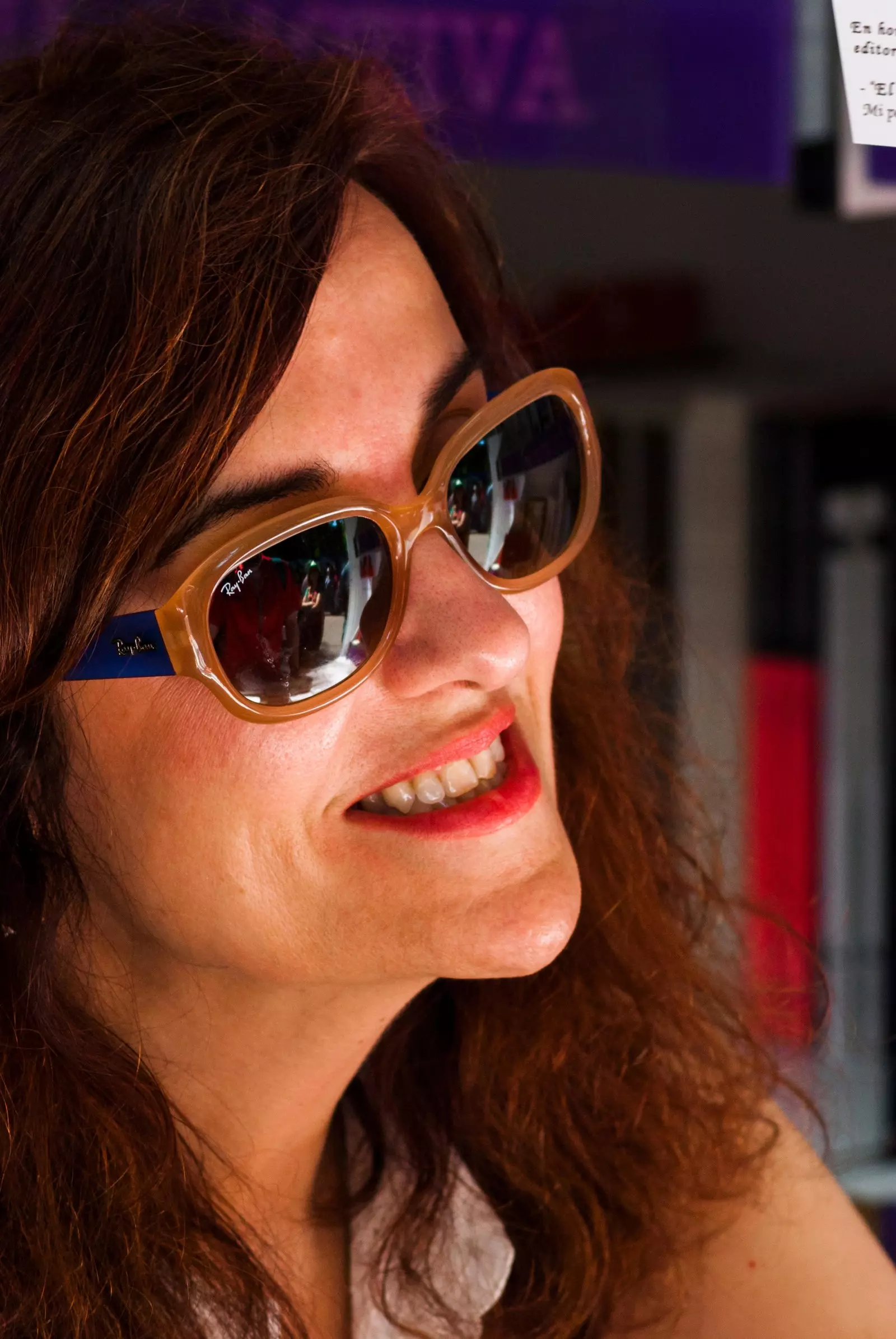
'Red Summer' by Elvira Lindo
Lately there is no cultural analyst or allologist that does not affirm with messianic ease that with the coronavirus the 21st century has begun . Before (or before before) that same scholar had done an identical analysis on the fall of the Twin Towers or on the economic crisis of 200 8. “Now the 21st century has begun!” (read with an admonitory tone, a thunderous voice and an accusing finger). because apparently only catastrophes and titanics inaugurate the centuries . However, from here I am here to amend the plan for supra-allologists (that the insidious corrector of my computer insists on calling podiatrists), since for me the millennium is not inaugurated by Bin Laden or the ridiculous Effect 2000 that he was going to leave us all locked in an elevator, but the first Summer Red of elvira cute.
(Dramatic pause) Yes, I know I'm exaggerating. Yes, I know that the century really began in 2001 (I was married to a mathematician who corrected you at will). But if I say it, it's because he pleases me, because what is not exaggerated does not shine and because after reading me in one go all the columns that the writer published in the summer supplement of The country from 2000 to 2004 –in the precious edition of Fulgencio Pimentel with a cow in the pool–, after laughing out loud, I have been possessed by a certain painting spirit and vivalavirgin that encourages me to write as a faithful and chusquera imitator of that Elvira Lindo.

'Red Summer' by Elvira Lindo
If you are or have been a newspaper reader (that exciting physical and mental vice that stains your fingertips and makes you feel like you understand the world), if you are not millennial or centennial , you will probably remember having experienced the flash of the Summer Red in the daily press. In my case (which is not that it matters much, but why not) "the reds" were the first thing I read every day and also the first thing I commented with my then friend from Murcia and mathematician via SMS, which was the chat of the time. Between sexting and sexting, message about La Lindo . And so.
“I am a difficult person to relax –the writer tells us, that she feels in the field like an octopus in a garage–. Either I'm awake or I'm asleep, but that of having a blank mind does not go with me . Of the oriental philosophies, I only like sushi”. While her saint goes into ecstasy with the manzano brother, the quince brother and the barbecue sister. Or pearls like this: “Sometimes you hate your entire family, you notice that you have a mania for it, you know that it is very ugly, but you cannot help it. It happened to me last night, specifically ”. What is a summery, populist and transversal thought where there are.
Of course, as with anything really worthwhile, among the readers of the time there was no unanimity . To the haters of that time ( base gentlemen or members of the league of dignity and high culture) that column seemed like a sultry goofball collection and “no message”. But in my opinion (and that of Fulgencio Pimentel's editors, who have good taste if they have one thing) those family chronicles in which the author recounted the day-to-day life of a couple of writers on their summer vacation in the mountains – he was more intellectual, a caricature of the authentic Muñoz Molina; she, more vitalistic, chisgarabís and an inveterate consumerist – were a brilliant, self-parodic and neurotic portrait full of insights into human nature and the society of the time. Because, as she herself says in a "red", " I am an anthropologist rather than a woman of letters ”. Which means that nothing human is alien to him and that there is no detail of the supposed summer calm that he does not sharpen; nor incoherence of one's own or another's that is not left bare under his spirited and castiza magnifying glass.

Elvira Lindo and Antonio Muñoz Molina, in a summer of 2006
His is a style that leaves miseries in the air (especially his own) . In the tradition of what the Anglo-Saxons call the self-deprecating , that we have seen in the best Woody Allen and in the best Lena Dunham, but that in our country continues to be the exception due to that recalcitrant maxim that "Dirty clothes are washed at home" , which so often leaves us blind to ourselves.
read the Summer Reds is to travel to a summer and a time that seem unattainable for his innocent and old normality . To those summer nights when the toad croaks, the owl hoots, the dog barks, the cat meows and the teenage children lying on the sofa await their tortilla sandwich with passive demand. is to meet again Evelio, the lazy bricklayer who enters and leaves the house whenever he wants ; that he talks to the writer looking at her boobs, that he leaves the ditches open for them from one year to the next and that he locks himself in the hallway bathroom to shit, smoke and talk on the phone; he is laughing with "The Saint" by Elvira Lindo , and his apple tree and her fumigation backpack, and his Thermomix (“A new dawn!”) and his XL books on Churchill, Mao, Lenin or Netanyahu; and her L for rookie driver (Elvira doesn't drive: she's a “taximaniac”).
Back to Summer Reds it is eat shrimp with Paco Valladares , who is still alive and flirts left and right with his sweet voice and his magazine airs; it is to stay curdled on the sofa with “El Tomate” in the background on TV; meet again with the boy Omar , a temporary addition to the family, who, as the author explains in the prologue, was actually the son of the Guinean housekeeper, who went on vacation and left him as a foster. It's laughing again with the author's father, that supernatural being who smokes a Fortuna between courses and a Ducats after dessert , who demands his wine, his chorizo, the large slice of melon, the ice cream, the coffee, the malt whiskey and the chocolate, because if not… something is missing. And it is to attend the cathodic birth of Jorge Javier, of Belén Esteban and the Matamoros, who were then still “young promises” of the “chou couché”.

summer red
It is to return to texts and characters that have not lost their freshness, tenderness or “ malafolla ” and that although they are the product of their time, they say more about us than we think because they do it without censorship and without masks, but above all, without masks.
Even the author herself is amazed in the prologue of her daring back then: “I read these comic pieces that I wrote for five consecutive Augusts and I feel stupor, amusement, astonishment and retrospective modesty at the same time. I laugh and put my head in my hands. Because the most common expression that comes to mind is: “ My God, what value! ”. What nerve did I have to so shamelessly turn my daily life into the stuff of pure comedy.” But of course, then there were no social networks, no trolls. He read everything quisqui and the haters were limited to writing abstruse letters to the editor that were easy to get pissed off about.
Travel to this book, because we may not be the same, but the Summer Red by Elvira Lindo remains a source of pure happiness in the throat and in the heart.

Elvira Lindo at the 2015 Madrid Book Fair
